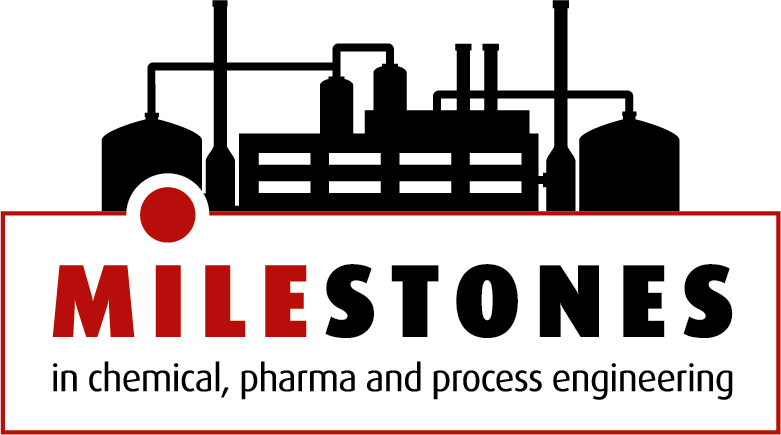:quality(80)/images.vogel.de/vogelonline/bdb/1860700/1860769/original.jpg)
Safety Explosion Isolation Valves are now Safer than Before
Rico Sicherheitstechnik has introduced the next generation of Ventex explosion protection valves which now features a flow velocity of at least 30 m/s, thus ensuring an even higher level of process reliability and flexibility.
Related Companies

Rico Sicherheitstechnik is launching the next generation Ventex explosion protection valve and offers customers a wide range of innovations and optimizations in the field of explosion isolation. The valve now features a flow velocity of at least 30 m/s in all nominal sizes, thus ensuring an even higher level of process reliability and flexibility, states the company. The valve can be placed directly upstream or downstream of pipe bends in the pipeline; double pipe bends or a combination of pipe bends in different directions are also not a problem.
In this way, the company ensures significant advantages in plant design, as customers do not have to reserve as much space and a straight pipe section is also not a requirement. The installation distance in the area of organic dusts has been extended and is between 2 m and 15 m, depending on the nominal size. These two innovations result in increased flexibility in the use of the passive explosion protection valve. Even in existing plants, integration is fast and easy, adds the firm.
For processes involving metallic dusts, the new Ventex is also certified in the nominal size DN400. Moreover, the new generation also achieves up to 20 % better values in terms of pressure drop and the DN250 nominal size, which was previously not offered, has been added to the portfolio and is now available as standard.
The firm is also able to further improve the maintenance modalities as part of its research and development, as well as achieve important flow and gasket optimizations. These not only prevent a possible flameout, but also dampen the high accelerations when the valve closes in case of an explosion, mentions the company. During numerous explosion tests on its products, the firm discovered that a gasket is absolutely necessary for safety reasons and has functional advantages in terms of contamination and assembly tolerances compared to a narrow metallic gap.
All gaskets are no longer fixed with glue, but plugged in using a new type of technology, so that, in the interests of the customer, maintenance can be carried out in an equally cost-effective, simple and fast manner, which facilitates rapid recommissioning, concludes the company.
(ID:47553705)




:quality(80)/images.vogel.de/vogelonline/bdb/1860200/1860286/original.jpg)
:quality(80)/images.vogel.de/vogelonline/bdb/1853500/1853514/original.jpg)
:quality(80)/images.vogel.de/vogelonline/bdb/1856600/1856612/original.jpg)
:quality(80)/images.vogel.de/vogelonline/bdb/1860900/1860948/original.jpg)
:quality(80)/images.vogel.de/vogelonline/bdb/1860500/1860584/original.jpg)
:quality(80)/images.vogel.de/vogelonline/bdb/1860200/1860236/original.jpg)
:quality(80)/images.vogel.de/vogelonline/bdb/1859700/1859729/original.jpg)
:quality(80)/images.vogel.de/vogelonline/bdb/1861000/1861090/original.jpg)
:quality(80)/images.vogel.de/vogelonline/bdb/1860300/1860328/original.jpg)
:quality(80)/images.vogel.de/vogelonline/bdb/1858200/1858200/original.jpg)
:quality(80)/images.vogel.de/vogelonline/bdb/1857100/1857117/original.jpg)
:quality(80)/images.vogel.de/vogelonline/bdb/1860700/1860757/original.jpg)
:quality(80)/images.vogel.de/vogelonline/bdb/1858300/1858367/original.jpg)
:quality(80)/images.vogel.de/vogelonline/bdb/1856700/1856747/original.jpg)
:quality(80)/images.vogel.de/vogelonline/bdb/1851900/1851933/original.jpg)
:quality(80)/images.vogel.de/vogelonline/bdb/1859700/1859771/original.jpg)
:quality(80)/images.vogel.de/vogelonline/bdb/1858000/1858082/original.jpg)
:quality(80)/images.vogel.de/vogelonline/bdb/1859000/1859000/original.jpg)
:quality(80)/images.vogel.de/vogelonline/bdb/1858300/1858328/original.jpg)
:quality(80)/images.vogel.de/vogelonline/bdb/1860200/1860255/original.jpg)
:quality(80)/images.vogel.de/vogelonline/bdb/1859400/1859423/original.jpg)
:quality(80)/images.vogel.de/vogelonline/bdb/1859300/1859387/original.jpg)
:quality(80)/images.vogel.de/vogelonline/bdb/1807900/1807985/original.jpg)
:quality(80)/images.vogel.de/vogelonline/bdb/1797900/1797927/original.jpg)
:quality(80)/images.vogel.de/vogelonline/bdb/1797600/1797603/original.jpg)
:fill(fff,0)/p7i.vogel.de/companies/5f/98/5f98fbb2e7bf2/05-trm-filter-logo-with-slogan-en-alt.png)
:fill(fff,0)/images.vogel.de/vogelonline/companyimg/26900/26987/65.jpg)
:fill(fff,0)/images.vogel.de/vogelonline/companyimg/20700/20709/65.jpg)
:quality(80)/images.vogel.de/vogelonline/bdb/1697000/1697026/original.jpg)
:quality(80)/images.vogel.de/vogelonline/bdb/1731700/1731765/original.jpg)